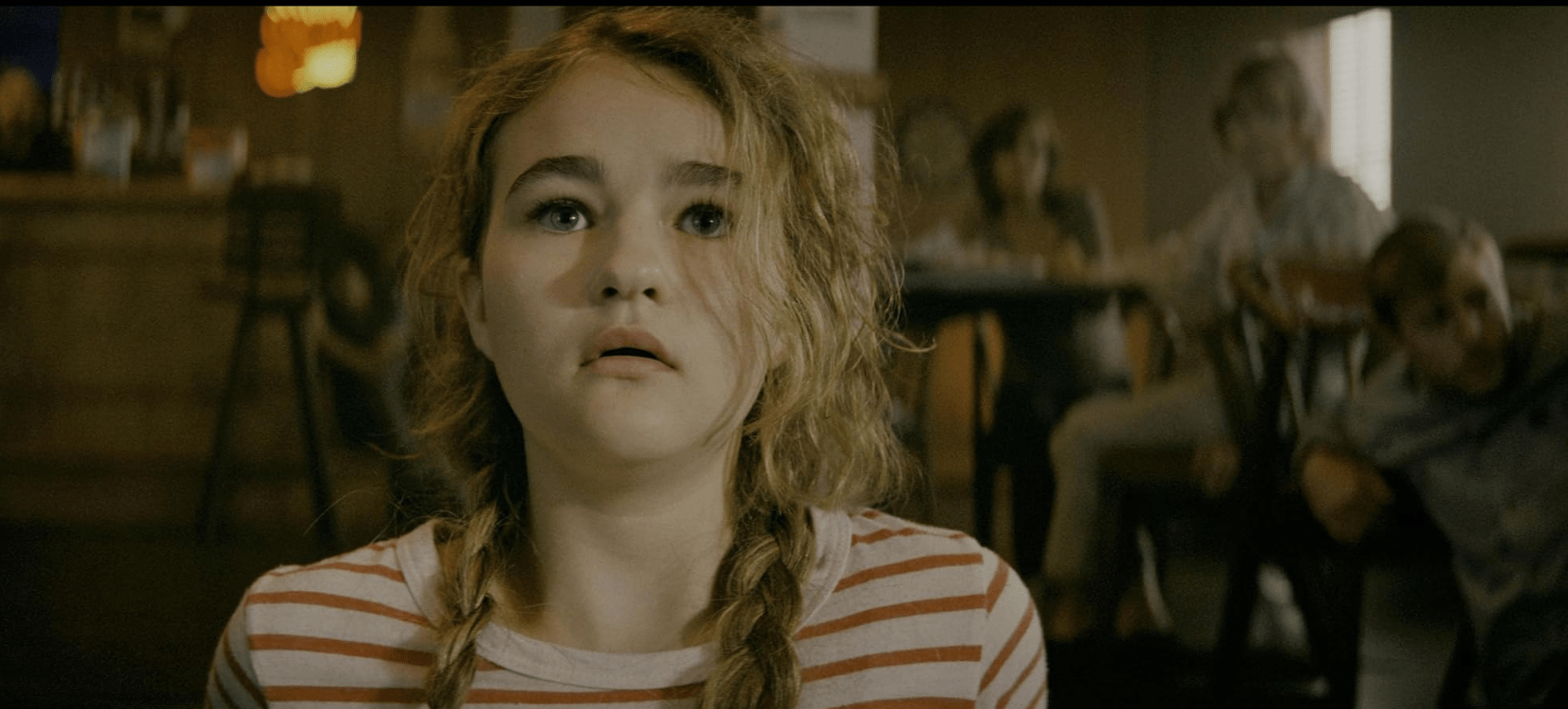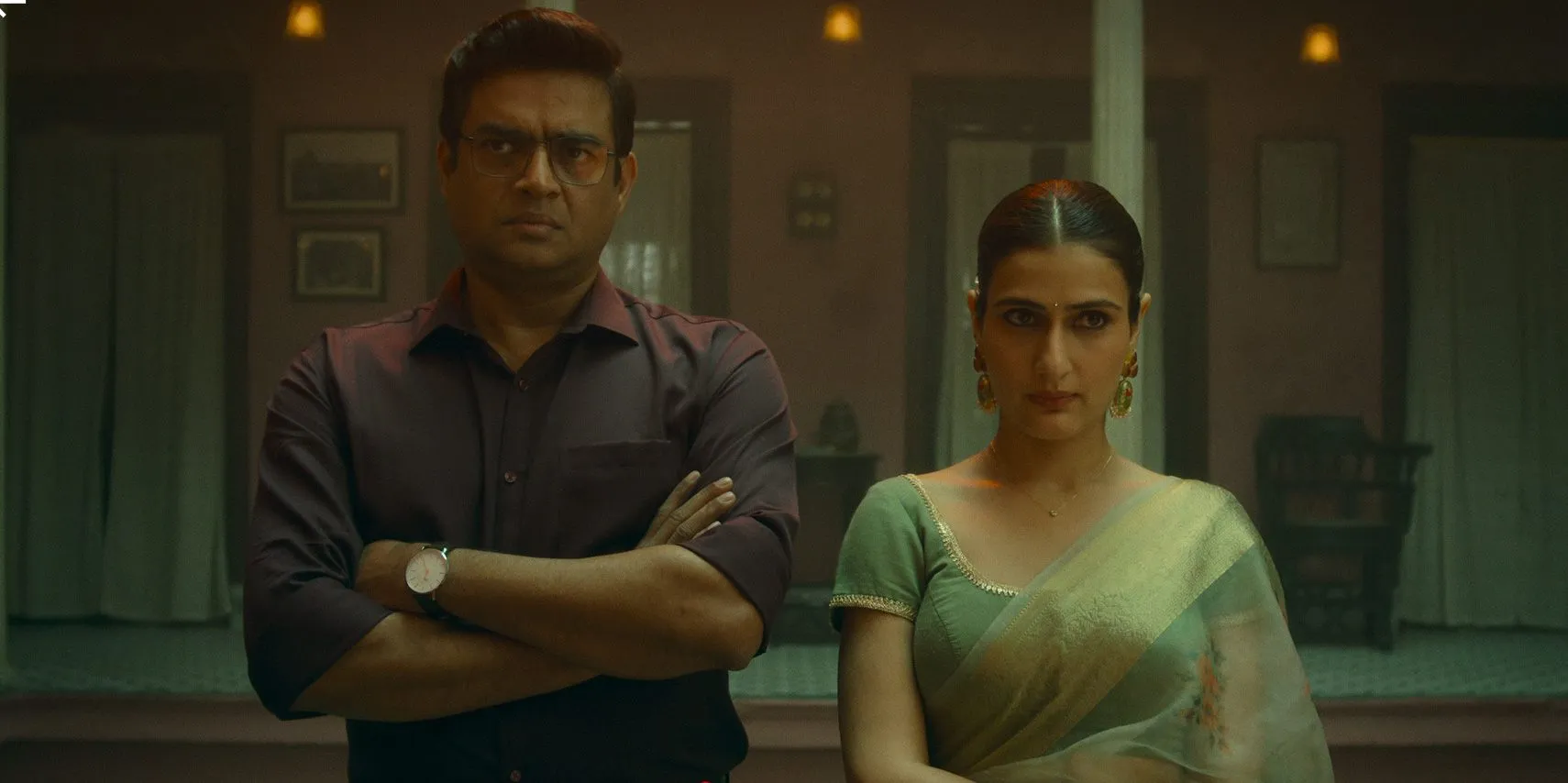We recently observed the International Day of Persons with Disabilities on 3rd December. While people’s rights movements began garnering popular support at the turn of the last century, the Disability Justice movement had to wait until a few decades back, to make its way into mainstream discourse. This day came about to raise awareness and improve the chances of inclusion for persons with disabilities in all spheres of life.
One such area where the representation of persons with disability has been limited is popular media. More specifically in the cinematic and TV space. Of course, there have been many stories on and around disabled people and popular ones at that, like “Forrest Gump” (1994) and “The Theory of Everything” (2014). But when it came to authentic representation, many of these films failed the litmus test.
For non-disabled actors playing disabled parts is about proving their acting mettle, for which they inevitably win accolades—both Tom Hanks and Eddie Redmayne received Oscars for their roles. On the other hand, authentic representation lets disabled actors (who anyway are perceived to be limited in their options due to their disability) find opportunities to prove themselves. Not to mention the fact, that representation is all about allowing minority groups to find role models who look like them and are like them.
So here are eight examples—spanning genres and formats—where not only disabled actors were cast in diverse fictional genres, but when they took things into their hands, and helmed projects that tell their stories.
1. Crip Camp: A Disability Revolution (2020)
While the 1960s are famous for its counter-culture anti-establishment sentiment, the historical story of a few teenagers who went to “Camp Jened,” began in the summer of 1971. James LeBrecht (who co-directed this documentary feature along with Nicole Newnham) was one of those who attended this camp. One of his camp counsellors was Judith Heumann, whom the world would later come to know as one the foremost disability rights activists who was incremental in the legislation of the Americans with Disabilities Act of 1990.
Tracing the lives of the disabled teens who attended Camp Jened, this film continues to follow how they came together in a historic movement to claim their human rights. This documentary is an essential watch for anyone who wants to learn about the disability justice movement and its origins. However, this film will leave its viewers blindsided with the true resilience of intersectional community building.
2. Never Have I Ever (2020-2023)
Although high school comedies have been done to death, “Never Have I Ever,” ticked some delightful boxes. It was a win for the South Asian community with Mindy Kaling helming the project, and Maitreyi Ramakrishnan (Devi) being the first brown teen who has led a teen comedy series. However, the series went deeper with bringing in a truly diverse cast, and not just stopping with queer or ethnic visibility, but bringing in disabled characters.
As the series progressed, we were introduced to Paxton’s (the school heartthrob and Devi’s too) sister Rebecca Hall-Yoshida. Played by Lily D. Moore, who has Down syndrome, Rebecca is a feisty character. Instead of being a token character with little substance, Rebecca is shown to be a talented student of fashion designing.
Over the seasons Rebecca keeps appearing as someone who develops a friendship with Devi and calls out her “hot” older brother on multiple occasions.
3. A Quiet Place (2018)
Directed by John Krasinski of “Office” fame, “A Quiet Place,” has garnered its cult following over the years. Its novel premise—a post-apocalyptic world where blind alien monsters hunt down humans with their supersonic powers—attracted a sizeable audience. Krasinski took this already intriguing setting and made it an excuse to immerse his audience in a deaf person’s world where no sound is made.
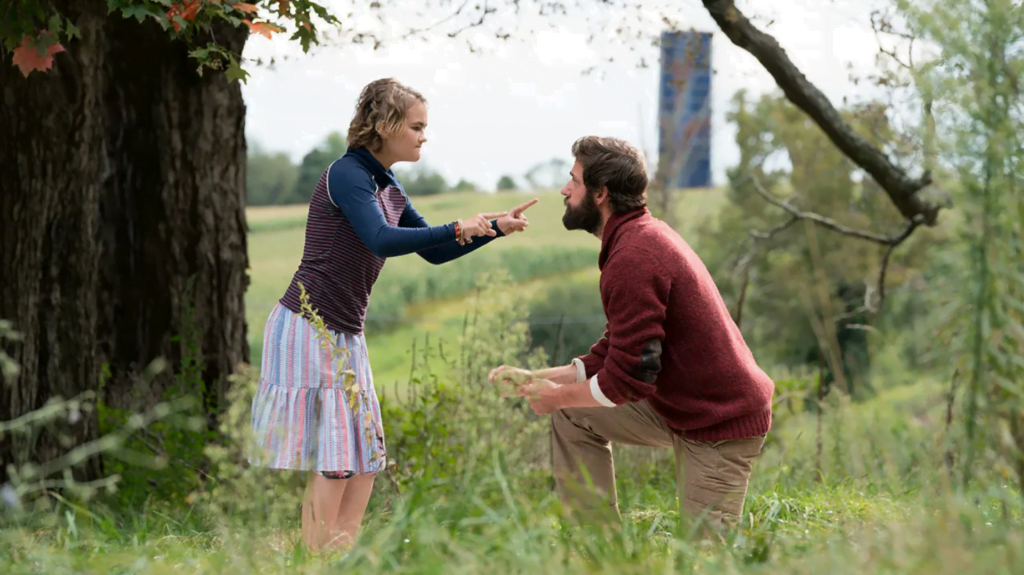
The film is told through the eyes of a single family who has survived the alien attack. Casting Millicent Simmonds, a deaf actor, was the last brilliant stroke that brought the project together. The eldest child of her survivor family Regan (Millicent Simmonds) has a very nuanced character arc. She moves through emotional complexities that ultimately lead her to redemption. Not only is Simmonds in a very prominent role, but again her deafness becomes a very crucial detail in the climax of the film.
4. Atypical (2017-2021)
Another high school drama “Atypical,” was more drama and less comedy. It follows the life of Sam Gardener (Keir Gilchrist), an 18-year-old on the autism spectrum, and his family. Created by Robia Rashid, the series tries to take an empathic gaze towards kids on the spectrum. However, it was met with valid criticism for not casting actors from the spectrum besides Anthony Jacques in a limited supporting role.
Thankfully, the creators paid heed, and in the second season, they brought in several autistic actors from the Miracle Project. They all played characters from Sam’s peer support group. Thereon, these actors remained staples of the series for the successive three seasons.
Through the trope of the peer support group, the makers brought out several nuances of what it feels like to navigate a world that is not designed for people on the spectrum. Furthermore, the characters also came into their own as a colourful collective, who not only become a part of Sam’s close circle but also offers him feedback when he needs it.
5. Children of a Lesser God (1986)
Marlee Matlin, the deaf actor and activist, came into the spotlight recently with her 2021 film “CODA,” but I want to rewind to her debut film. An intense romantic drama about a hearing aid teacher, James Leeds (William Hurt) and a deaf janitor, Sarah Norman (Matlin).
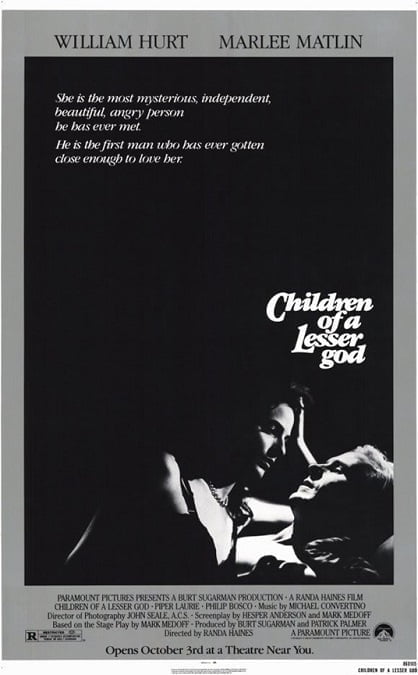
The film follows the turbulent relationship between the two where Leeds tries to impose his ableist standards on Sarah, and tries to get her to speak. And she rebels back in a push-pull dynamic between the two. Consequently, they learn to come to a middle ground to co-exist with each other.
Matlin, who was in her early twenties, at that time, received an Oscar for her role. It was perceived to be a “powerful performance,” given she emoted so passionately without using words.
Although it was the early days of disability awareness—the original film was released without subtitles, clearly only for a hearing audience—the film remains a brilliant portrayal of the nuances of a relationship between a disabled and a non-disabled person.
6. Sex Education (2019-2023)
Speaking about desire and disability, “Sex Education,” gave us one of the most iconic characters with disability. The series follows the complicated highs and lows of hormonal teenagers from “Moordale Secondary School,” and their “sex therapist,” Otis Milburn (Asa Butterfield). Shortly after the release of its first season, “Sex Education,” became a cult phenomenon. Its open inclusive and nuanced message of sex positivity ushered in a cultural revolution of sorts.
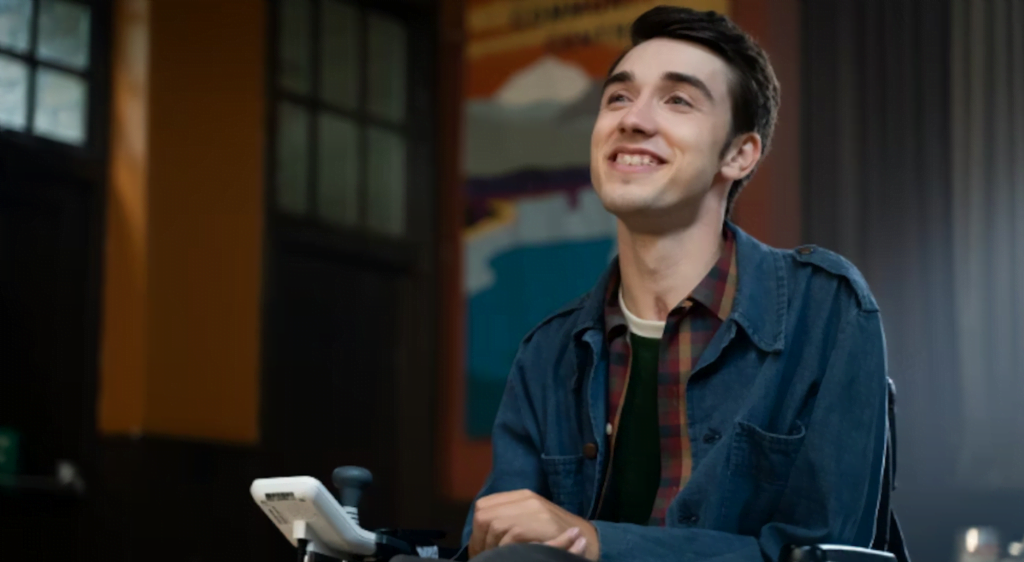
Of course, it had a beautiful diverse cast. One of these characters was Isaac Goodwin (George Robinson). Introduced in the second season of the series, Isaac moves to the same trailer park as Maeve (Emma Mackey). Over three seasons, his relationship with Maeve goes a full circle. From neighbours to romantic partners to great friends.
Even more refreshing is the grey shades of Isaac’s character, when he feels jealous of Otis’ feelings towards Maeve. The intimate scene between Maeve and Isaac received praise for its humane and non-condescending gaze. The icing on the cake comes in the last season, as Isaac’s character becomes the prime mobilizer for a protest at his college towards better accessibility.
7. My Beautiful Broken Brain (2014)
Lotje Sodderland was an “impassioned,” and “articulate,” content producer in her early thirties when she suffered an intracerebral brain haemorrhage. It caused significant impairment to a lot of her cognitive—like reading, writing, memory processing—and executive abilities, and led to sensory sensitivities.
The film follows Lotje and her inner circles -consisting of family and friends—journey over the year from the day of her stroke. Besides, its distinctive visual format—which interweaves Lotje’s recordings, and her fantastical almost hallucinogenic perception of the world—the film touches upon a lot of crucial issues that persons with disabilities face.
Her journey with recovery breaks the myth that it’s a linear process. Existing in a world, not attuned to Lotje’s sensory needs, causes her fatigue and frustration. During her hospitalisation, the film also highlights how she has very little autonomy over her own body.
Conversely, her sensory sensitivities revolutionised her understanding and perception of time and reality, leading her to discover her inner world.
Ultimately, the film shows Lotje’s brain perceives the world differently, and it is rather arrogant for neurotypical people to assume that it is “broken,” for not conforming to neurotypical standards.
8. The Midnight Club (2022)
From the surreal world of Lotje, we move into the supernatural world of Mike Flannagan. Although Flannagan is now being hailed as a master in the psychological horror genre, he is equally known for the diversity of his characters. “The Midnight Club,” which is set in a hospice for terminally ill teenagers becomes a hotspot for both possibilities.
Anya (Ruth Codd), one of the residents at Brightcliffe Home Hospice. Being treated for bone cancer, Anya uses a wheelchair for mobility. She is the roommate of Ilonka (Iman Benson), the protagonist. After the rocky start, the two develop a friendship.
As the plot progresses, the audience is allowed into the chequered backstory behind Anya’s hard exterior. Ruth Codd was discovered from her TikTok page and is quite vocal about bringing more awareness and visibility to disabled bodies.
